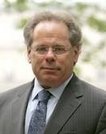European Russophobia and Europe’s Rejection of Peace: A Two-Century Failure
Europe has repeatedly rejected peace with Russia at moments when a negotiated settlement was available, and those rejections have proven profoundly self-defeating. Read more
 Steven Cohen
Steven Cohen
The private sector cannot make the transition from a waste-based economy to a renewable one by itself. This transition can only happen if we can create a public-private partnership. This is nothing new; we've been through this before. The transformation from an agrarian economy to an industrial economy could not have been done under the laissez-faire economic philosophy of the early industrial age. Teddy Roosevelt and his allies understood that and began to regulate the marketplace. Food, drugs, labor and monopolies were regulated at the start of the 20th century. FDR continued the process of increasing the role of government in our mixed economy. Government was needed to establish the rules of the game-a social safety net-along with transportation, energy and water infrastructure. Now, as we begin the transition from a fossil fuel-based economy to one based on renewable energy and other reusable resources, government has a critical role to play again.
While I am focusing here on the role of government, it is important to understand that the private sector has a much larger and even more important role to play in the transition to a sustainable economy. It is the private sector that produces the goods and services that modern life relies on. We like and want these goods and services and without capitalism's power to motivate and reduce inefficiency, there would be far fewer of these goods and services to consume. This is not an argument that government knows best. It is the argument that effective competition requires rules, referees and meaningful penalties for anti-social, criminal behavior. I am saying that in a complex economy on a crowded planet, we need a set of rules that respond to the complexity and planetary stress that our global economy has created. Just as the regulation of Wall Street builds confidence in the public marketplace for capital, we need rules to ensure that economic life does not destroy the planet that provides us with food, air and water.
Read the full article at Huffingtonpost